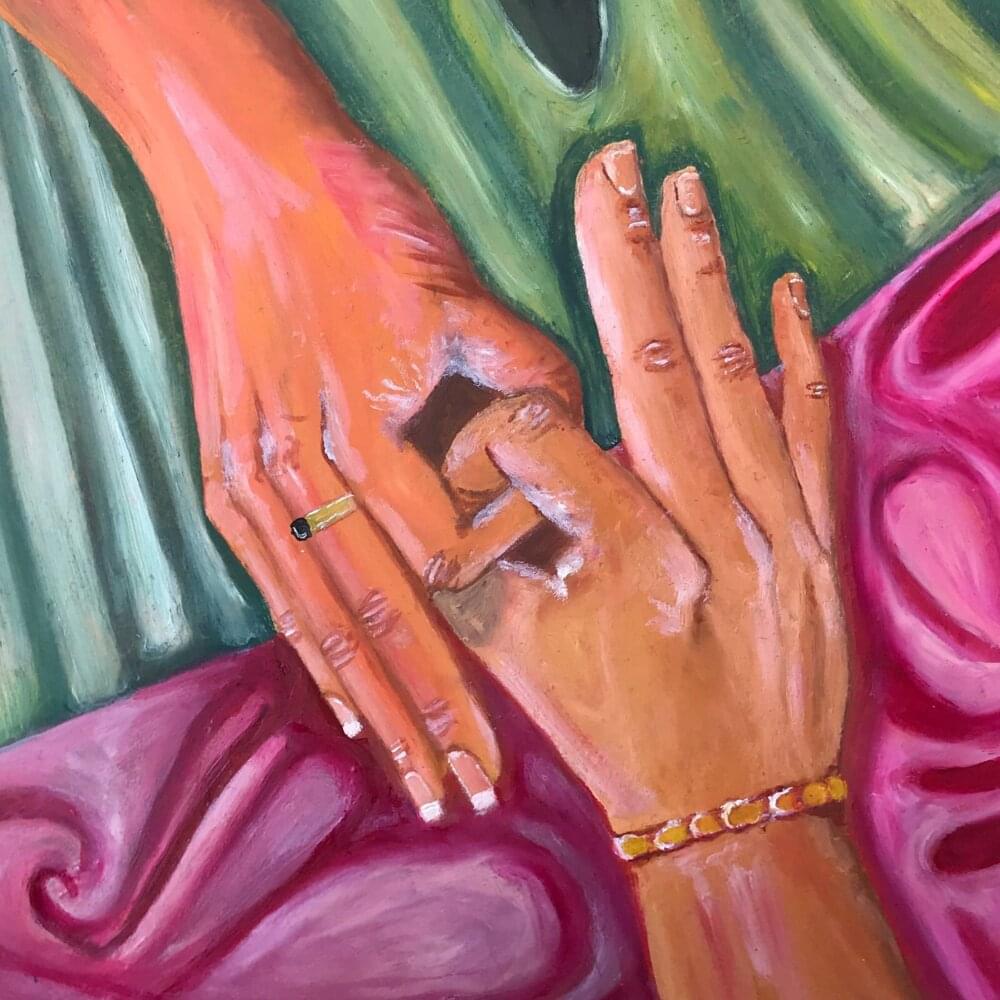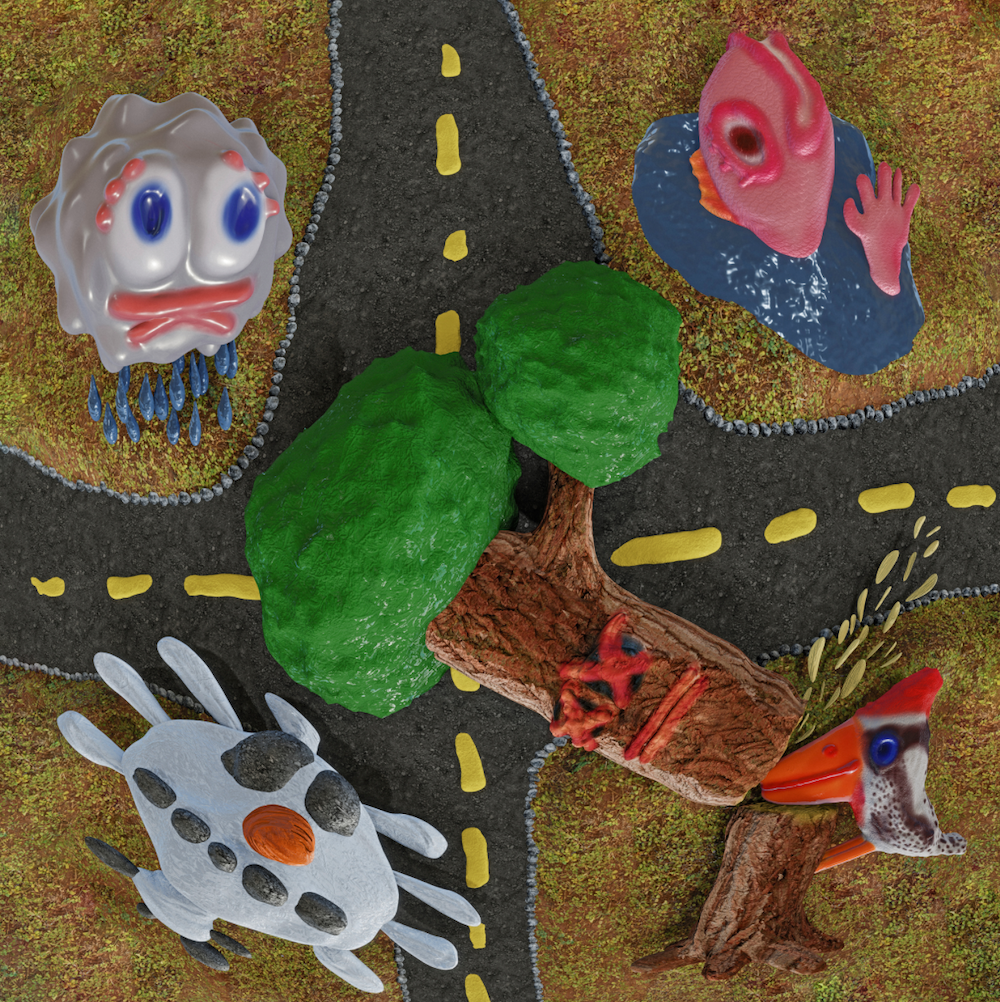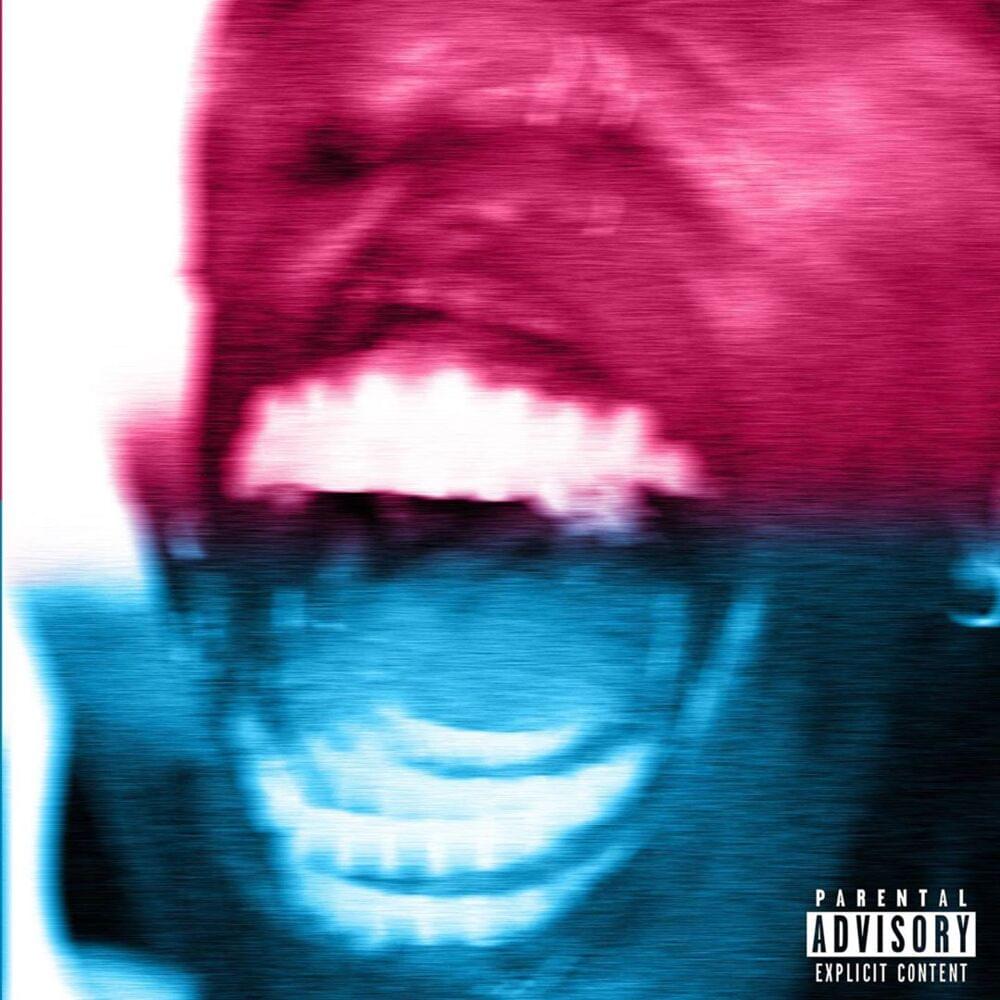Summer might be dead, overthrown by the inevitable rule of the quarter system, but that doesn’t mean that the songs and shows that sustained us during this hot quarantine season have to be forgotten as well. From A&E to you, here are some of our staff-favorite rewinds to reminisce about 2020’s warm summer nights.
Musical: “Hamilton”

I remember, years ago, reading about the debut of “Hamilton” in the back of a “TIME” magazine. During Barack Obama’s presidency, it had sounded revolutionary: a Broadway-musical retelling of Alexander Hamilton’s life featuring hip-hop, rap, and a predominantly non-white cast. With lively, memorable songs like “My Shot” and “Alexander Hamilton” breaking into the mainstream, Lin Manuel-Miranda’s “Hamilton” became the introduction to musical theatre for many, and spawned a worldwide following that has been sustained, thanks to Disney+’s recent release of a live stage recording, to today.
But today is another story. In the midst of a pandemic, an election year, and Black Lives Matter protests, what was once a political statement and a proud reclamation of a racist history is now a tone-deaf romanticization of America’s founding fathers. Being cognizant of these two polar-opposite perspectives and contexts, as well as the musical’s overall hype, I went into “Hamilton” — now finally accessible — with eagerness, apprehension, and high expectations.
As pure entertainment, it certainly lives up to expectations. Following along to the rapid-fire lines is certainly a feat for the untrained ear, but it is ridiculously easy to get lost in this one-stage world where people sing and dance in period costumes. Multi-talented actors like Leslie Odom Jr. (Aaron Burr) and Daveed Diggs (Marquis de Lafayette) steal the show with their verses and voices. Even more impressive are the musical’s seamless choreography and lightning-quick scene transitions. So many songs had me scrambling to Spotify, most notably “The Room Where It Happens,” a jazzy number revealing Aaron Burr’s motivations, “You’ll Be Back,” King George III’s catchy comic-relief tune, and “It’s Quiet Uptown,” an aching ballad of grief and forgiveness.
It’s all dazzling, good fun — until the finale. Slack-jawed and awed, I watched as emotions flared, guns were drawn, and the musical truly elevated itself into something great. Yet after the hype, the sold-out tickets, and the backlash, I can’t help but remain conflicted. My appreciation of craft and enjoyment of pop musicals and period costumes clash with critiques of faux progressivism, and I’m left thinking of the musical’s big question: Who tells your story? To some, “Hamilton” is a story about one man’s legacy. To others, a symbol of racism’s legacy. Only time will tell how the story of “Hamilton” ends.
— Natalie Tran, Senior Staff Writer
Video Game: “Among Us”

In previous summers, my friends and I would typically go out to the beach and maybe some ball games and concerts. However, Summer 2020 will go down in my book as the strangest summer ever because of how we spent our time together: in space doing tasks … in “Among Us.” “Among Us”is an online multiplayer game developed by company InnerSloth, originally released on June 15, 2018. Similar to party games like “Mafia,” there are two teams: crewmates and impostors. The impostors’ main goal is to kill crewmates and not be caught, while crewmates must go around the map and complete tasks in order to win. The premise of the game is very simple, and to be quite honest, a lot of the tasks are very mundane and annoying. However, the main charm and highlight of this game comes from when a player reports a dead body and initiates the discussion of the impostor’s identity. Just from one summer alone, I have been able to obtain so many fond memories of me and my friends arguing about whether someone is or is not the impostor. I feel like this game brought us closer in a time when we are all distant from each other due to the pandemic. “Among Us” offered an escape from reality by making the interactions among people the core of the game. “Among Us”is proof that game developers do not need a lot in order to create something amazing, evidenced by the fact that the team who created the game was composed of only three people. “Among Us”gives me hope for future indie developers and the games they will produce.
— Hector Arrieta, Senior Staff Writer
Song: “Perfecto” by Sen Senra

My first introduction to Sen Senra was his newest single “Perfecto,” a tune about being involved with another, both emotionally and physically. Sen Senra delivers his lines with a staggered flow, speeding up and slowing down to match the melancholy drums pulsing in the background. The music video features him clad in a matching jacket-and-pants duo reminiscent of the Calvin Klein Raf Simons 2018 collaboration, surrounded by darkness and dancing on water. The simple, yet unique aesthetic of the music and its video quickly led me down a rabbit hole as I tore through one video after another, taking in Sen Senra’s short YouTube catalog.
Senra hails from Vigo, Spain, and he currently has three full-length albums out on streaming platforms. Most of the music videos I watched belong to his third studio album, “Sensaciones.” Senra’s first two albums, “Permanent Vacation” and “The Art of Self-Pressure,” are an assorted mix of songs sung in both Spanish and English. However, while these two albums are enjoyable enough, they feel incomplete, lacking the interesting artistic choices that make Senra’s latest album so enjoyable.
While his first two albums were a decent, slightly generic mix of English and Spanish, 2019’s “Sensaciones” is Senra’s first all-Spanish album. This album is where Senra seems to find his voice, taking a sharp turn into reverb-heavy indie rock and R&B. Interspersed throughout the album are hints of synth-pop and hip-hop drums, which, when mixed with Senra’s versatile vocals and soft guitars, deliver a deeply satisfying performance. I found myself discovering and rediscovering hidden gems within the 42-minute project, often leaving with a new favorite song. Even though Sen Senra only has about 410,000 monthly listeners on Spotify, he is definitely someone to keep your eye on.
— Elías Román, Staff Writer
Film: “I’m Thinking of Ending Things”

Charlie Kaufman’s “I’m Thinking of Ending Things” simultaneously over-saturates, deconstructs, and re-merges the barriers between time, thought, dream, touch, movement, and song. It is both a sensory overload and stark realization through the eyes of a tragically lonely high school janitor, propelled by his consumption of artistic media. With a particular dependence on the classic Rodgers and Hammerstein musical “Oklahoma!,” the film makes use of the musical’s famous dream ballet sequence, capitalizing on its fantastical narrative force to underscore the protagonist’s struggles. It feels like a distant sequel to his acclaimed 2004 film “Eternal Sunshine of the Spotless Mind,” embodying the somber experience of losing control to an amalgamation of memories to stitch together an imagined reality.
Although the language of the film might otherwise seem pretentious in the quantity of its allusions, it ultimately leaves you with a feeling of intentional emptiness. It overloads your senses as a final attempt in catharsis. It takes you through the initially confusing numbness of another’s nonlinear timeline until you are forced to acclimate to what you cannot fully make sense of. You must crawl yourself out of someone else’s psyche, but a psyche that was falsely constructed as a coping mechanism. The journey is not an easy one, but the disorientation feels necessary. Full of uncanny closeups, unstable lighting, unpredictable uses of musical theatre, and jarring track shots of multiple speeds, this film is sure to take you on an unparalleled ride through tainted, fantastical nostalgia.
— Marina Lee, Contributing Writer
Hanaa’s Top Summer Shows: “Pose,” “Insecure,” “Ramy,” “Pen15”
With the world locked away in their homes, Summer 2020 proved to be the perfect time for all production companies to release their content. Week after week, new seasons of shows were released, and I am here to review as many as I can.

First, we have “Pose,” which is not on many viewers’ watchlists despite being out for two years. “Pose” gives an inside look into the ball culture scene of New York City during the ‘80s. The best aspects of this show are the costuming and the writing, as well as the deep look into the AIDS epidemic that struck NY during this time. The costuming is inspired by underground ball culture, which subsequently created on-screen out-of-this-world themes, outrageous voguing, and mesmerizing makeup. The writing of the show has been criticized for being too dramatic and is often compared to how plays are written; this critique, however, does not stand. The writing of the show is overdramatized in order to highlight the fact that members within the New York Ball scene often speak with elegance and drama to grab attention. This show should be added to all watchlists because of the exposure it gives to an important aspect of queer culture to viewers who might not have otherwise ever been enlightened on this part of history.

Next, we have “Insecure,” which just finished its fourth season in June. “Insecure” follows a modern-day black woman trying to keep her head above water while handling her interpersonal relationships, career conflicts, and personal development hiccups. Two special components of “Insecure” are the carefully-curated soundtrack of mainly black artists and the carefully-laced exposé of Los Angeles’ gentrification problem. Issa Rae delivers the best comedic writing on television, perfectly embodying the subtle specialities of mundane day-to-day interactions. For anyone interested in writing good onscreen comedy, or just in need of really good music, “Insecure” is the show for you.

Third, we have “Ramy,” a show giving an inside look at the inner workings of an immigrant family living their American Dream. The plot follows Ramy, a man lost in his own navigation of a reality split by his heritage and the culture that surrounds him. Beautiful cinematography is paired with a soundtrack of Arabic, French, and English music, and the witty writing from the characters keeps the plot fresh and interesting. One of the first predominantly-accepted shows dedicated to displaying the Middle Eastern immigrant experience, Ramy is a must watch for any viewer interested in different cultures.

Lastly, we have the show “Pen15.” The show follows the life of two middle schoolers trying to survive school drama and puberty mishappenings. With witty writing and horrifyingly accurate depictions of that one time in middle school when the guy that constantly bullied you asks you to go to the gym closet, “Pen15” comes back full force in its second season. A special quality about this season is the deeper delve into middle school experiences such as navigating a toxic relationship without having ever been in one, a dabble in witchcraft, and expanding your interests. For anyone really just wanting to turn off your brain and have some laughs, “Pen15” is the show for you.
— Hanaa Moosavi, Senior Staff Writer
Hemmy’s Top Summer Tracks and Albums: “I can’t wait for you to come my way,” “Snail,” “Memphis (Pt. 2)”
2020 has undoubtedly been a momentous year in bringing forth social change and uncovering the sometimes uncomfortable but necessary truths that had been left buried for far too long. One unexpected ramification from this shift is the drastic impact these movements had on the music industry. This summer, dozens of formerly-loved indie artists and bands were exposed for their predatorial and problematic behavior, causing an explosive response from the media and fan bases. A common complaint from those who continued to support the accused artists was that it was difficult to find creators who weren’t “cancelled,” and while I understand this sentiment to a certain degree, there are countless talented artists in the indie music scene who are also actual good people. So without further ado, here are my top three certified summer bops from my current favorite non-problematic, under-hyped, rising artists.

The Bay Area collective “Peach Tree Rascals” (Dom, Isaac, Tarrek, Joseph, and Jorge) have been releasing underrated bangers such as “Mango,” “Mariposa,” and “Summa,” for a while, but are just now finally starting to get their well-deserved break for their feel-good, upbeat music. Several of the members are second-generation Americans with immigrant families, and their journey from being unrecognized artists struggling to pay rent, to where they managed to get to today, is an inspiring call to action to all music creators. This summer, the group released their EP “I can’t wait for you to come my way,” — the title of which also happens to be lyrics to “Mariposa” — and much to my surprise, surpassed the already-immense hype I had constructed for it in my head. My personal favorite track is “Deer,” in which they sing “I’m in need of some love today / It can’t seem to roll my way / I’ve felt like I’m rollin’ on roller skates.”
Although they fall into the alternative/indie genre, their music bends labels with their new groovy sound that was perfect for summer, and can best be described as sounding like yellow flowers and late night summer car rides with friends.

BENEE, the artist most known for her song “Supalonely,” exploded onto the music scene this year with a little help from TikTok, but her other songs are just as catchy as her most popular single, if not more. The track “Snail” that she released in August is a perfect example of her fun, alternative, pop vibe, and I strongly recommend it for those who want to be introduced to her music, or listen to more of her songs. Once you hear the first few notes drop, I promise you’ll catch yourself singing “I’m like a snail, you’re a guy / Kinda mad I can’t fly” for a week straight as you absentmindedly dance around in your kitchen.

I have a deep, dark confession to make: I was a Brockhampton stan from 2017 to 2019. All jokes aside, I no longer support this group due to their problematic history, but the influence they had on alternative hip-hop and pop rap is undeniable, and I found myself missing their sound as I scrolled on Spotify endlessly this summer, hoping to find a group with a similar vibe. This is when I would like to introduce the one and only *drumroll* AG Club! AG Club is a hip-hop collective from the Bay Area composed of Loui (production, vocals), Baby Boy (vocals), Jody Fontaine (vocals), Manny (design), and Mick Anthony (vocals, guitar). They came out with “Memphis (Pt. 2)” on Aug. 28, which was revealed to be a track off their forthcoming album “FYE.” This single is a remix of their most popular song “Memphis” and features NLE Choppa and A$AP Ferg. It is actually scientifically impossible not to nod your head to every beat of the track, and get sucked into the rabbit hole of their charismatic and catchy music. Their sound is reminiscent of a “Saturation” era Brockhampton, and I can almost guarantee you will fall in love with their music if you also enjoy artists like A$AP Mob, Kenny Mason, and 99 Neighbors. Although Odd Future and Brockhampton’s influence can definitely be felt through their music, it is important to remember that AG Club is their own unique group with their own vision, and while comparisons can be helpful to find other artists, their individuality should ultimately be respected.
AG Club’s music feels special, not just because it takes you back to a memory where you and your friends couldn’t stop laughing with each other at the park before life stopped being so simple, but also because you know that listening to their music makes you a witness to the start of something huge.
— Hemmy Chun, A&E Editor
Images as they appear courtesy of: YouTube, USA Today, Steam, Genius, IMDb, Collider, IndieWire, SceneArabia, IndieWire, Arts + Culture – Affinity Magazine, Stereogum, Genius.








